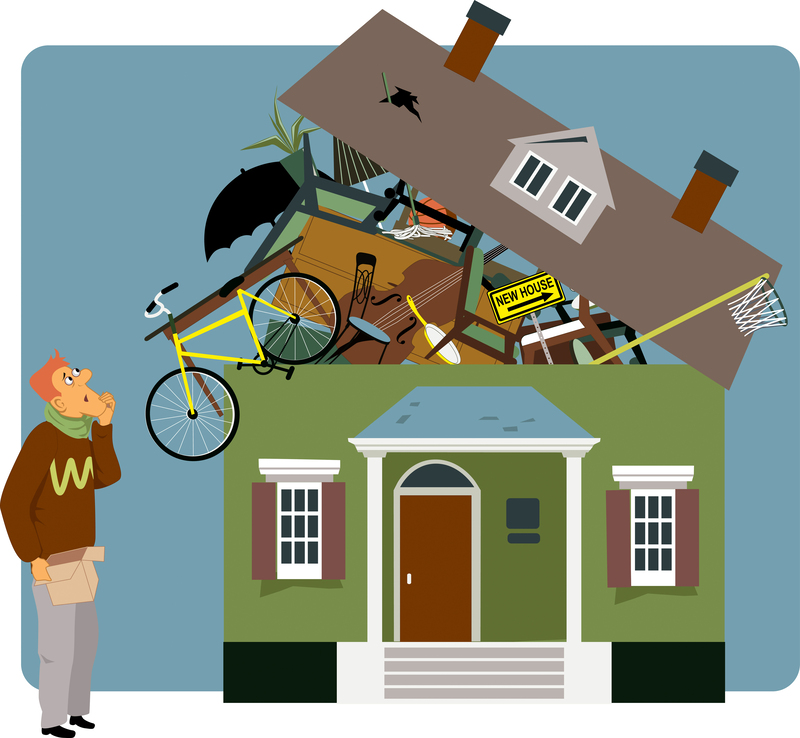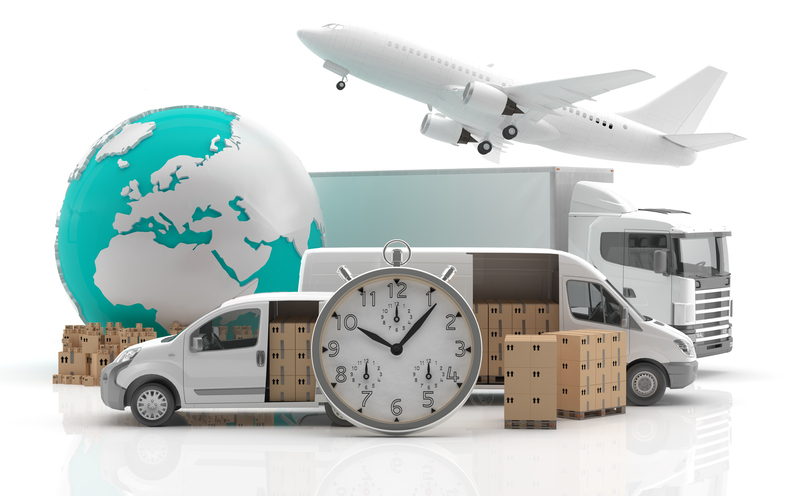Protecting Your Investment--Why You Shouldn't Move a Piano Alone
Moving a piano is not just any relocation task--it involves protecting a significant investment, both financially and emotionally. Pianos are beautiful, intricate instruments that add sophistication and joy to our homes. But when it comes to moving them, should you really do it yourself? In this comprehensive guide, we'll explain exactly why you shouldn't move a piano alone, the risks involved, and how hiring professional piano movers can save you money, stress, and even prevent serious injury.

Understanding the Value of Your Piano
The True Worth of Your Piano
Many families treasure their pianos as heirlooms, passed down through generations. Even if your instrument is not a grand concert piano, its value often goes beyond its price tag. Here's why:
- Emotional Investment: Pianos often hold sentimental value, representing family traditions and cherished memories.
- Financial Investment: Quality pianos can cost anywhere from a few thousand to tens of thousands of dollars; repairs and tuning add more to the overall investment.
- Craftsmanship: Pianos are marvels of engineering, with thousands of moving parts delicately calibrated for sound quality and touch sensitivity.
Protecting your piano means protecting your investment, and mishandling it during a move could result in irreparable damage.
Common Types of Pianos and Moving Challenges
Why Moving Any Piano Is a Complex Task
Pianos come in various shapes and sizes, each presenting unique moving challenges:
- Upright Pianos: Compact, but still extremely heavy and awkward to maneuver due to their height and weight distribution.
- Grand Pianos: Larger, with irregular shapes that require special handling. Their legs, pedals, and lid must often be removed for safe transit.
- Digital Pianos: Lighter than their acoustic counterparts, but still delicate electronics can be easily damaged.
Regardless of type, pianos typically weigh between 300 and 1,200 pounds and are not designed to be frequently moved.
Major Risks of Moving a Piano Alone
Potential Dangers to Your Piano
Attempting to move a piano solo may seem like a way to save money, but it comes with significant risks, such as:
- Structural Damage: Pianos have fragile legs, pedals, and cabinetry that can snap or crack with improper handling.
- Internal Mechanism Damage: Sudden movement can throw off the precise alignment of hammers, dampers, and strings.
- Surface Scratches and Dents: Dragging or bumping the instrument against walls, doorways, or staircases can mar its finish.
- Tuning Instability: Even minor bumps can significantly affect tuning, leading to costly repairs.
Potential Dangers to Yourself and Your Property
- Personal Injury: Lifting such heavy weight without proper technique or equipment can result in back injuries, crushed fingers, and more.
- Instability: Large pianos can tip over unexpectedly, endangering anyone nearby.
- Damage to Flooring and Walls: The sheer weight can easily scratch hardwood, crack tiles, or punch holes in drywall, leading to expensive repairs.
According to the U.S. Consumer Product Safety Commission, thousands of injuries occur every year during residential moves. Piano-related accidents are especially common among DIY movers.
Why Professional Piano Movers Are Essential
Specialized Knowledge and Equipment
Professional piano movers possess both the experience and tools required to ensure a safe move. Here's what they offer:
- Specialty Dollies and Straps: These are designed to evenly distribute the piano's weight and prevent dangerous deadlifts.
- Protective Wrapping: Movers use custom padding to protect delicate finishes from scratches and impacts.
- Piano Skids and Boards: Grand pianos require a special moving board to remain steady during transport.
- Disassembly and Reassembly: Experienced movers safely detach and reattach critical parts like lids and legs.
Efficient Navigation Through Tight Spaces
Moving a piano through staircases, hallways, or elevators often requires creative problem-solving. Professional movers know exactly how to maneuver large instruments in confined spaces without causing damage.
The Financial Argument: Saving Money by Spending Smart
Calculating the True Cost of DIY Piano Moving
Many people believe they can save money by enlisting a few friends and renting a truck. But consider:
- Repairing a damaged cabinet or soundboard can easily cost $500 to $1,000+.
- Professional piano tuning post-move often costs $100 to $300.
- Medical bills for back injuries can be astronomical.
- Your homeowners' insurance may not cover DIY damage.
By contrast, professional piano movers usually charge between $200 and $600 for local moves--a small price to pay compared to potential repair and medical costs.
Step-by-Step: How Professionals Move Pianos
The Professional Piano Moving Process
If you've never watched professionals at work, here's how they do it:
- Inspection: Movers assess your instrument, entranceways, and route to plan the move.
- Preparation: They wrap the piano with heavy padding to protect every surface and safely remove any detachable components.
- Lifting & Securing: The keyboard lid is locked, the body secured with custom straps, and the instrument is gently lifted onto a piano dolly.
- Navigating the Path: Movers carefully wheel the instrument through the home, mastering stairs and tight turns with specialized ramps or boards.
- Loading & Transport: The piano is positioned in a moving truck using brake-equipped dollies and ramps, then safely secured for the journey.
- Reassembly & Placement: At your new home, movers reassemble any removed parts and place the piano exactly where you want it, checking for balance and stability.
- Post-Move Inspection: Many pros offer to coordinate a tuning service after the move to ensure your piano sounds its best.
Insurance & Liability: A Safety Net You Don't Have Alone
When you move a piano solo, you carry all the risk. But reputable piano movers offer:
- Comprehensive Insurance: Any damage occurred during the move is usually covered by the moving company's policy, sparing you the expense.
- Liability Coverage: If a mover is injured, their insurance covers claims--not yours.
This peace of mind alone is worth the investment.
Signs That You Should Hire a Professional Piano Mover
If you're still weighing your options, ask yourself the following:
- Is my piano heavy or has awkward parts? (Uprights, grands, or console pianos.)
- Do I need to navigate stairs, narrow doorways, or elevators?
- Does my piano have sentimental or financial value?
- Do I have access to the proper equipment?
- Do I understand the risks of moving such a large, delicate instrument?
If you answer 'yes' to any of the above, protecting your investment means you should not move your piano alone.
Piano Moving Myths Debunked
Common Misconceptions About DIY Piano Moving
-
"Pianos are sturdy--they'll survive a short move."
The outer cabinet may seem tough, but the interior mechanics are finely tuned and can easily be thrown off by bumps or jolts. -
"I can save money by doing it myself with friends."
In reality, the cost of repairs, injury, or home damage often far outweighs hiring a pro. -
"We'll be careful, so nothing will go wrong."
Even minor slips can be costly when dealing with such a heavy, awkward object. Professionals are trained for every contingency.

Testimonials: Real-Life Stories from Harmed Pianos
Still unsure? Here are some case studies that illustrate the consequences of moving a piano without professional help:
-
The Family Heirloom Disappeared
A DIY mover tipped a 70-year-old upright piano while navigating a tight staircase. The piano's legs broke and the soundboard cracked, destroying an irreplaceable family heirloom and resulting in a $3,000+ loss. -
Back Injury and Lost Wages
An amateur mover sprained his back lifting a baby grand, resulting in weeks off work, costly medical bills, and lasting pain. -
Scratched Hardwood Disaster
Sliding a piano across the living room gouged a trail through newly-installed wood floors, costing hundreds in repairs.
Final Thoughts: Why You Should Invest in a Professional Move
Your piano represents an important investment--one that deserves to be protected with the same care as any other valuable possession. The risks associated with moving a piano alone are simply not worth what little initial savings you might expect. Enlisting professional piano movers is the smartest way to ensure your instrument, your home, and your health remain protected.
Don't gamble with your investment--hire experienced professionals and enjoy peace of mind, knowing your piano will continue to provide beauty, music, and memories for years to come.



